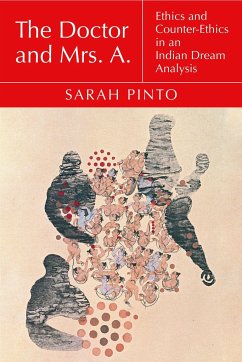"A richly layered, rigorous, often surprising, delightful romp of a book that will appeal to a wide range of readers."-Lucinda Ramberg, Cornell University "Sarah Pinto's brilliant third volume on women's lives in India sets three time horizons in conversation with one another: the tense 1940s just before Partition; the mythic figures of Draupadi, Shakuntala, and Ahayla; and today's women, including the author and a wonderful meditation using artist Shahzia Shikander's imagery of gopi hair. Dev Satya Nand, a psychoanalyst, and Mrs. A., a twenty-one-year-old regretting her marriage and the foreclosure of college ambitions, and in thrall to Nehru and Hindu socialism, together reinvent Freud's methods and set the volume in motion."-Michael M. J. Fischer, Massachusetts Institute of Technology Just before India's independence, a young Punjabi woman, ill at ease in her marriage and eager for personal and national freedom, sat down with psychiatrist Dev Satya Nand for an experiment in his new method of dream analysis. The published analysis documents a surge of emotion and reflections on sexuality, gender, marriage, ambition, trauma, and art. "Mrs. A." (as she is known) turned to female figures from Hindu myth to reimagine her social world and its ethical arrangements, envisioning a future beyond marriage, colonial rule, and gendered constraints. This book explores the conversation between Mrs. A. and Satya Nand, its window onto gender and sexuality in late colonial Indian society, and the ways Mrs. A. put ethics in motion, creating alternatives to ideals of belonging, recognition, and consciousness. It finds in Mrs. A.'s musings repertoires for the creative transformation of ideals and explores the possibilities of thinking with a dynamic concept of counter-ethics. An unconventional history of gender and sexuality in late colonialism, this book reminds us that the west did not invent feminism, that psychiatry's history of innovation and creativity is global, and that ethical thinking does need not center on western myths or paradigms. Sarah Pinto is Professor of Anthropology at Tufts University.
Bitte wählen Sie Ihr Anliegen aus.
Rechnungen
Retourenschein anfordern
Bestellstatus
Storno







